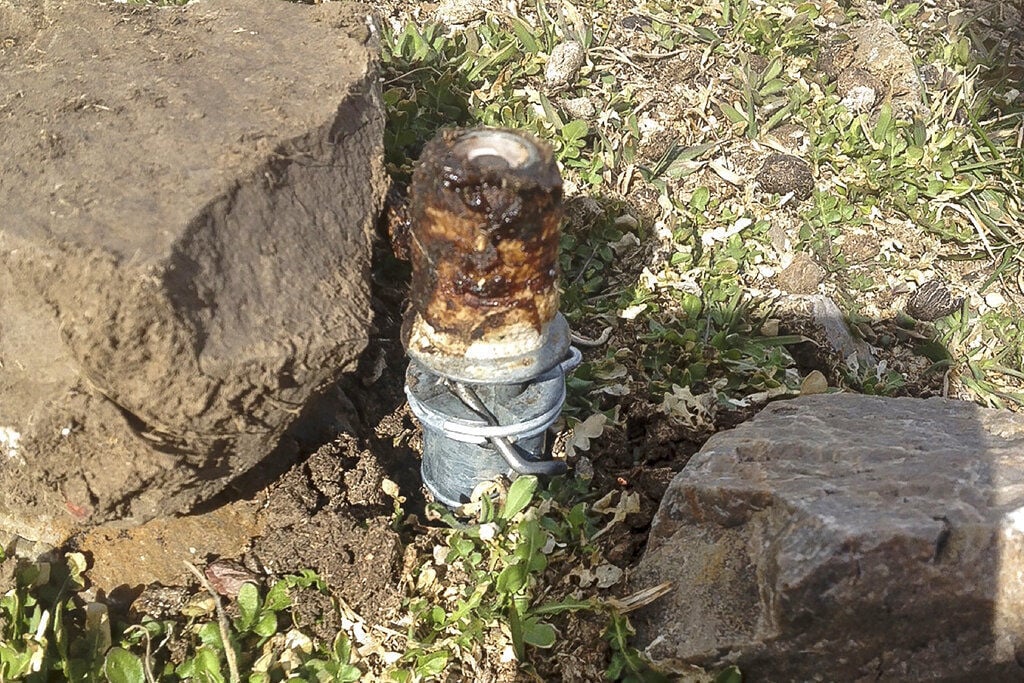U.S. government to pay local family $38,500 in lawsuit over illegally placed M-44 'cyanide bomb'
U.S. government agrees to pay local family $38,500 in lawsuit over illegally placed M-44 'cyanide bomb'
By Shelbie Harris sharris@journalnet.com 17 hrs ago
POCATELLO — The U.S. government has agreed to pay a local family $38,500 and admit it was negligent three years after a 14-year-old boy watched his dog die when an M-44 “cyanide bomb” exploded on the hillside behind their home east of Pocatello.

In this March 16, 2017, file photo released by the Bannock County Sheriff's Office is a cyanide device in Pocatello, Idaho. The device, called M-44, is spring-activated and sprays poison that is meant to kill predators.
Reed Larsen, the Pocatello attorney who represented the family — Mark and Theresa Mansfield, and Canyon — their now 18-year-old son who watched his 3-year-old Labrador named Kasey convulse and die after tripping the cyanide-spraying, government-installed M-44 device about 300 yards from their Bucksin Road home in March 2017 — described the settlement as a definite victory.
“This is what a win looks like,” Larsen told the Idaho State Journal during a Friday phone interview. “The biggest thing that we wanted to accomplish was to make the government accept responsibility. It took a substantial amount of work, but finally the government admitted this was their fault — that their employee was negligent and that’s a very significant and permanent finding.”
While Canyon was out playing with Kasey along the ridgeline of the hillside located on Bureau of Land Management property less than a quarter-mile away from the Mansfield home, the boy triggered the M-44 predator control device — a spring-loaded metal cylinder baited with scent that indiscriminately shoots sodium cyanide powder into the mouth of mostly predators, but sometimes people and their pets, too.
Canyon not only watched his canine companion suffocate in front of him, but also experienced symptoms of cyanide poisoning for weeks following treatment at Portneuf Medical Center after he tripped the M-44 device, which Wildlife Services, an obscure division of the U.S. Department of Agriculture’s Animal and Plant Health Inspection Service had installed in February 2017.
{snip}
